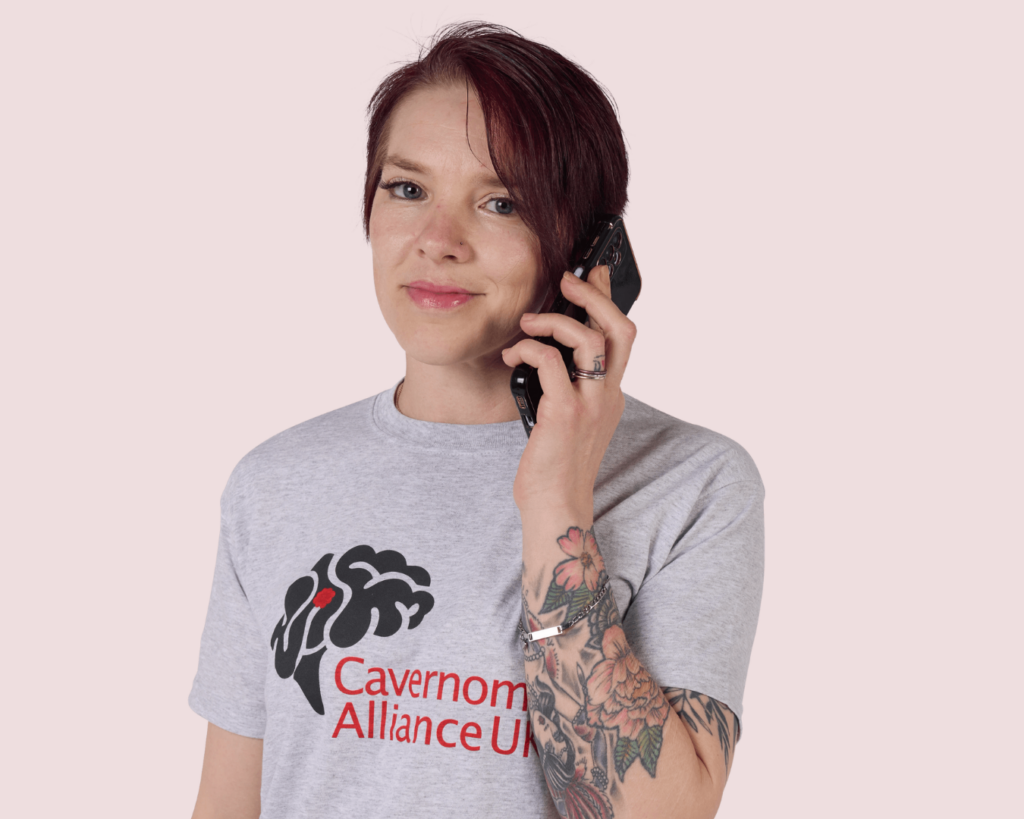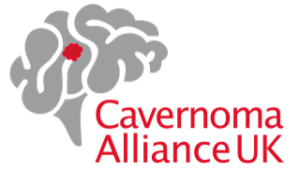Medical Management
Medical Management is an approach used when active treatment such as neurosurgery or stereotactic radiosurgery is not considered necessary or would carry greater risk. It focuses on monitoring the cavernoma and managing any symptoms that occur, such as seizures.
What is a medical management approach?
Not all cavernomas require immediate treatment. In many cases – particularly when a cavernoma is asymptomatic, stable, or located in an area where surgery would carry greater risk – medical management also known as ‘wait and see’ and ‘conservative management’ is recommended.
If you’re following this approach, regular MRI scans are not usually needed, unless there is uncertainty about the diagnosis or new symptoms appear. For some people, especially those who are asymptomatic, no active monitoring may be needed unless something changes. Any symptoms you do have will continue to be managed and monitored alongside this approach.
We understand that being on this pathway can feel unsettling. You may be worried about the cavernoma growing, bleeding, or your symptoms progressing. These feelings are completely valid. But it’s important to know that this approach is a common and medically recognised option, often chosen when the risks of intervention outweigh the benefits.
Symptom management
For people who do develop symptoms, seizures are the most common first sign – affecting around 50% of those with symptomatic cavernoma. Seizures can often be well controlled with anti-seizure medication, and your neurologist will work closely with you to find a treatment plan tailored to your needs.
If you are living with seizures or want to learn more, we recommend visiting:
• Epilepsy Action – trusted advice, information, and support for people of all ages
• Young Epilepsy – dedicated resources and support for children and young people
Around 25% of people with symptomatic cavernoma will experience an intracranial haemorrhage (bleeding). The effects can vary widely depending on the size and location of the bleed. Some people may experience headaches, weakness, changes in vision or speech, or problems with balance and coordination. These symptoms may resolve over time, or they may require ongoing support.
Even if surgery is not recommended after a haemorrhage, your care team will work with you to manage your symptoms and monitor your recovery. Rehabilitation support may also be important at this stage to help regain function and adjust to any lasting changes.
Speak with your GP, neurologist, or specialist nurse about whether any of these services could help you – and don’t hesitate to ask for a referral.
- Occupational Therapy – support with fatigue, adapting daily activities, returning to work
Speech and Language Therapy – help with speech, communication, swallowing
- Neuropsychology – support for memory, cognitive difficulties, or emotional wellbeing
- Neurophysiotherapy – help with movement, balance, and strength
- Ophthalmology – support for vision problems where relevant
Ongoing monitoring and support
If you are following a ‘medical management’ approach, regular MRI scans are not usually needed unless there is a specific reason, such as a change in symptoms or uncertainty about the diagnosis. What’s important is feeling confident about when to get back in touch with your clinical team. If you notice new symptoms or changes in how you feel, it’s always worth checking in so your care can be reviewed and adjusted if needed.
Remember, ‘medical management’ doesn’t mean being left to cope on your own. Cavernoma Alliance UK offers a range of support, including buddying, counselling, online meet-ups, and a helpline. Whether you’re looking for reassurance, practical advice, or simply someone who understands, we’re here for you.
We also know that the uncertainty of a cavernoma diagnosis – particularly without active treatment – can affect your mental wellbeing. If you’re feeling anxious, low, or overwhelmed, you’re not alone. CAUK offers up to four free counselling sessions with a therapist who understands the cavernoma journey.

To become a member of CAUK click here. Our helpline and online events are open to all. Our counselling, buddying and in-person events are open to UK resident members.
